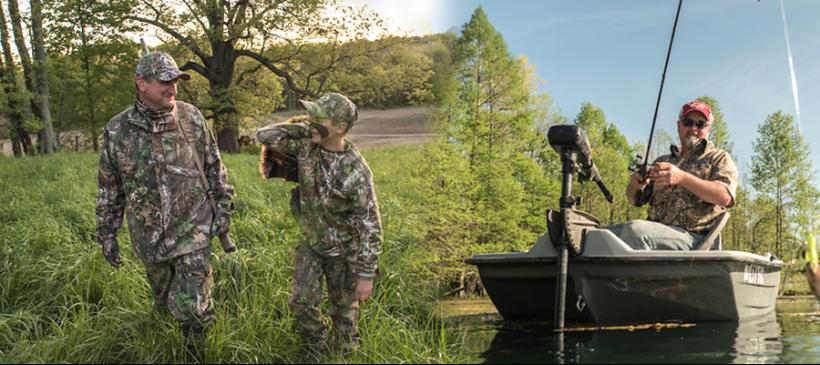Fishing and Hunting Contribute Billions to U.S. Economy
- May 4, 2017
- By Todd Whitesel
- Research

Fishing and hunting are long-standing institutions in the United States. Not only are they hobbies enjoyed by millions, fishing and hunting are important contributors to the country's massive outdoor recreation economy. Consumer spending on outdoor recreation contributes $887 billion to the U.S. economy, employs 7.6 million Americans and generates $125 billion in tax revenues. More than $63.1 billion in retail spending can be attributed to fishing and hunting, while the two industries employ nearly 483,000 Americans, with salaries and wages of more than $17.8 billion as disclosed in the Outdoor Industry Association's 2017 report The Outdoor Recreation Economy.
Fishing is the second most popular outdoor activity for American adults, trailing slightly behind running, jogging and trail running. The Outdoor Foundation's Outdoor Recreation Participation Topline Report 2017 noted 31.5 million adults 25 and older went fishing in 2016.
At the national level:
- Fishing-related retail purchases exceed $35.7 billion
- More than $11.8 billion is spent on fishing gear, accessories and vehicles
- Over $23.9 billion is attributed to trip-related spending
- 287,554 American jobs are sustained by fishing, with total wages over $10 billion annually
- Fishing generates more than $4.9 billion in federal, state and local taxes
The economic impact of recreational fishing positively affects state revenues, too. Fishing sustains more than 190,000 jobs for the five states of Florida, California, Michigan, Minnesota and New York, according to the American Sportfishing Association's Economic Contributions of Recreational Fishing: U.S. Congressional Districts. The Minnesota DNR has estimated fishing generates $2.8 billion in retail spending, while fishing and hunting together sustain more jobs in the North Star State than the Mayo Foundation, based on the Congressional Sportsmen's Foundation Economic Impact Report for Minnesota.
More than 27 million Americans went hunting in 2016, according to the 2017 Topline report. Like the recreational fishing industry, hunting-related revenues help drive the country's economy nationally and regionally.
Pure Michigan notes, “The U.S. Fish and Wildlife Service estimates hunting in Michigan generates more than $2.3 billion in economic impact in the state, including expenses related to food and lodging and $1.3 billion spent on equipment.”
The Illinois DNR estimates $2.1 billion is annually spent in Illinois on hunting and fishing, enough to support 22,000 jobs and a $700 million annual payroll. Hunting in Nebraska is said to drive $562 million in retail sales and 8,800 jobs, while hunter spending accounts for some $500 million in revenue for West Virginia, sustaining some 5,400 jobs and generating over $150 million in salaries and wages.
At the national level:
- 195,000 American jobs are sustained by hunting
- Americans spend more than $23.7 billion on retail hunting-related purchases
- More than $16 billion is spent on hunting gear, accessories and vehicles
- Over $11.3 billion goes to hunting trip-related expenses
- Hunting generates nearly $3.5 billion yearly in federal, state and local taxes
